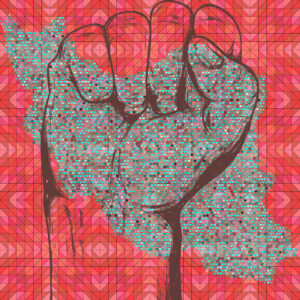Source >> International Viewpoint
The United States has a tremendous housing problem. There are not enough houses and apartments. Houses cost too much and apartments are too expensive. The housing problem affects everyone, especially those with low incomes. Lack of affordable and appropriate housing and the high cost leads to over-crowded housing, poor health, less academic achievement, food insecurity, and at its extreme to eviction and homelessness. Housing should be a right, and what’s needed is a budget of hundreds of billions to build social housing.
Most Americans, 66 percent, own homes, while 27 percent rent. But Black homeownership is only 44%, while for whites it’s 73%. The difference is due in large part to bankers red-lining of Black neighborhoods and denying those who lived there, loans and insurance to buy homes. While now illegal, the practice means that Black people bought few homes and so accumulated less wealth. It was a major contributor to the wealth-gap, so that today the median Black household has $24,000, while the median white household has about $189,000.
Today homeownership is increasingly unattainable because buyers don’t have high enough incomes for the down payment and the monthly mortgage. The median home sales price $329,000 in 2020, but rose 32% to $436,800 in March 2023. The rise in prices is putting housing out of reach of many middle class and working-class people.
At the same time almost 90 percent of cities have experienced rent increases and rental prices have gone up by about 9 percent in the last year. The median cost of a one-bedroom apartment last month was $1,504 monthly, but $3,900 in New York City and Los Angles $2,400. Many people are rent burdened, meaning that more than 30% of their income goes to pay the rent. Rising rental prices have meant rising evictions in several major cities such as New York, Houston, and Dallas-Ft. Worth.
Why is housing so expensive? Because not enough homes have been built. The United States needs approximately 7 million homes for low-income families, but builders prefer to build expensive homes for the rich because they are more profitable. They build big-box homes in the suburbs and transform city buildings that once housed two or three families into elegant one-family townhouse. so low-income housing has been neglected
The United States has little public housing and it is largely segregated, not by law but because city governments built public housing in white neighborhoods for white people and in Black neighborhoods for Black people. In big cities like Chicago, Black people often lived in projects in the Black ghetto, while white people could get government subsidized loans and move to the suburbs. Public housing was generally neglected as budgets were cut, while poverty and crime grew in the projects. And the government stopped building public housing. Today there are only about 1.2 million households in public housing which is run by 3,300 local agencies. City governments in places like L.A., San Francisco and Seattle, and state governments in California and New York have created some local programs, but they are not enough.
Without enough housing, and rents so high, many people have become homeless, now about 600,000 nationally. Increasingly working families, women and their children, whose wages are too low become homeless.
Fighting for more housing at lower prices is difficult. The housing business—construction, sales and rentals—is controlled by bankers, developers, builders, and real estate companies. The owners of these businesses exert enormous political influence in city, state, and federal governments and lobby to protect their interest. Every city has housing movements that fight for more housing, oppose rising rents and resist evictions. There are also national housing organizations that lobby for federal legislation. The Democratic Socialists of America and other leftists are involved in the housing movement. But we need a large, powerful movement to win social housing, which would lower all rents.
Art (53) Book Review (121) Books (114) Capitalism (65) China (79) Climate Emergency (98) Conservative Government (90) Conservative Party (45) COVID-19 (44) EcoSocialism (55) Elections (83) Europe (46) Fascism (56) Film (49) Film Review (68) France (70) Gaza (60) Imperialism (98) Israel (123) Italy (46) Keir Starmer (52) Labour Party (111) Long Read (42) Marxism (48) Palestine (168) pandemic (78) Protest (152) Russia (340) Solidarity (142) Statement (48) Trade Unionism (141) Ukraine (345) United States of America (132) War (368)
The Anti*Capitalist Resistance Editorial Board may not always agree with all of the content we repost but feel it is important to give left voices a platform and develop a space for comradely debate and disagreement.
Latest Articles
- Critical minerals and genocide in the CongoWhat’s behind the sudden surge of interest in rare earth minerals. Phil Hearse investigates.
- York Pride“What a big celebration it was!” Liz Thompson reports back from her first experience of York Pride when her son and his family invited me over from Leeds, to enjoy this year’s celebration.
- Red Roots Collective Solidarity StatementThis statement from Red Roots Collective (a group of Iranian activists based in Manchester) is against the Zionist war on Iran and in solidarity with the people of Palestine.
- Stop Israel now!A statement from the Fourth International Bureau issued on 13 June.
- Racism: The socialism of Fools; Racist Cancer Spreading from Ballymena in IrelandThe writer Fearghal Mac Bhloscaidh offers very valuable insights into the June 2025 pogroms spreading from Ballymena in North Antrim to other towns in the 6 County bit of Ireland, notably Larne and Portadown. These vile events are related to similar sewer eruptions in the 26 county bit of Ireland and fit into a global rise of genocidal-racist powers such as Putin’s Russia, Netanyahu’s Israel, and their protectors such as Donald Trump’s USA. The latter is still a capitalist bourgeois democracy – but credible analysts now ask – for how long?






